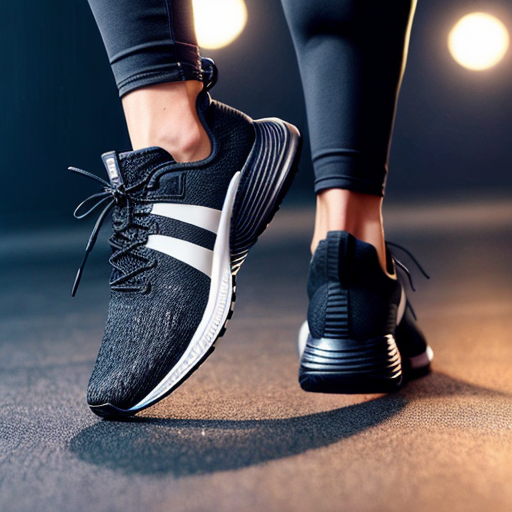Comparing Fitness Tracker Accuracy
Comparing Fitness Tracker Accuracy for Steps
In today’s health-conscious world, fitness trackers have become ubiquitous companions for individuals striving to stay active and monitor their physical activity Comparing Fitness Tracker Accuracy is an important factor when choosing your device.Among the many features offered by these devices, step counting stands out as one of the most fundamental metrics for assessing daily activity levels. However, not all fitness trackers are created equal when it comes to step accuracy. In this blog post, we’ll explore the factors that influence step counting accuracy, compare different types of fitness trackers, and offer tips on choosing the right one for your needs.
Factors Affecting Step Counting Accuracy
Before diving into the comparison, it’s essential to understand the factors that can influence the accuracy of step counting in fitness trackers:
Sensor Technology: Most fitness trackers rely on accelerometers to detect motion. The quality and sensitivity of these sensors can vary between devices, affecting step counting accuracy.
Wrist Positioning: The way you wear your fitness tracker can impact its accuracy. Wearing it too loosely or too tightly, or placing it on a part of the wrist that doesn’t move much, can lead to inaccuracies.
Type of Activity: Some fitness trackers are better at recognizing specific activities, like walking or running, while others may struggle with activities that involve less predictable motion, such as cycling or weightlifting.
Software Algorithms: The algorithms used by fitness trackers to interpret motion data can vary, and their effectiveness can influence the accuracy of step counting.
Individual Differences: People have different walking styles and stride lengths, which can affect step counting accuracy. Some fitness trackers allow for calibration to account for these differences.
Comparing Fitness Tracker Accuracy Types
Let’s compare different types of fitness trackers in terms of their step counting accuracy:
Wrist-Based Fitness Trackers: These are the most common type of fitness trackers, worn on the wrist like a watch. They use accelerometers to measure wrist motion, making them suitable for step counting. However, their accuracy can vary based on the factors mentioned earlier.
Clip-On Fitness Trackers: These compact devices can be clipped to your clothing or placed in a pocket. They tend to be more accurate for step counting because they are closer to your body’s center of mass and can detect motion more precisely.
Smartphone Apps: Many people use smartphone apps to track their steps. While convenient, their accuracy depends on factors like the quality of your phone’s sensors and how you carry your phone while walking.
GPS-Enabled Trackers: Some fitness trackers and smartwatches have built-in GPS, which can improve step counting accuracy, especially for outdoor activities. GPS can provide more precise distance measurements.
Comparing Specific Models
While it’s challenging to provide an exhaustive comparison of specific fitness tracker models due to the ever-evolving market, here are a few models known for their step counting accuracy as of my last knowledge update in January 2022:
Fitbit Charge 4: Fitbit has a reputation for accurate step counting, and the Charge 4 is no exception. It uses a combination of sensors and algorithms to provide reliable step data.
Garmin Forerunner Series: Garmin’s Forerunner series is known for its accuracy, especially for runners. These watches often come with GPS, which enhances step counting precision.
Xiaomi Mi Band Series: Xiaomi’s Mi Band fitness trackers offer affordability without compromising on accuracy. They have gained popularity for their reliable step counting.
Apple Watch Series: Apple’s smartwatches, including the Apple Watch Series, use a combination of sensors, including GPS, to provide accurate step and distance data.
Withings Steel HR: Withings’ Steel HR hybrid smartwatch is praised for its step counting accuracy and classic watch design.
Choosing the Right Fitness Tracker for You
When selecting a fitness tracker, consider the following tips to ensure accurate step counting:
Research and Reviews: Look for reviews and user feedback regarding the accuracy of a specific fitness tracker model.
Calibration: If the fitness tracker allows it, calibrate it to your individual stride length for improved accuracy.
Wear It Properly: Wear the fitness tracker according to the manufacturer’s guidelines, ensuring it’s snug but not too tight.
Choose Based on Activity: If you have a specific activity in mind (e.g., running or cycling), consider a tracker designed for that activity.
GPS Option: If outdoor activities are a priority, consider a fitness tracker with GPS capabilities for more accurate distance and step tracking.
Conclusion
Step counting is a fundamental metric for monitoring daily activity and achieving fitness goals. While the accuracy of step counting can vary among fitness trackers due to factors like sensor technology and individual differences, many reliable options are available. By researching and choosing a fitness tracker that aligns with your specific needs and activities, you can make the most of this valuable tool to stay active and track your progress accurately.



